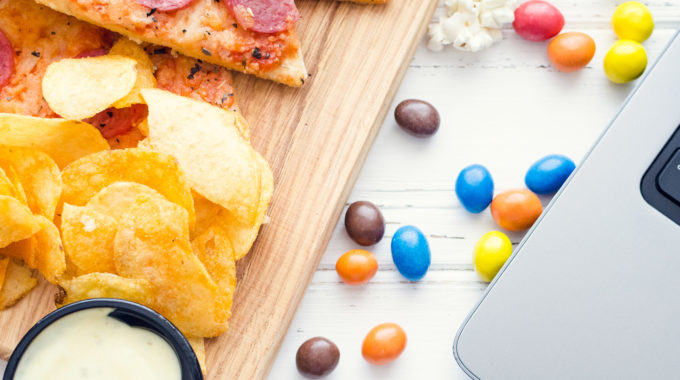Pandemic bad habits still linger
Lockdowns might be a distant memory for most, but it appears that some of the bad habits that Australians developed while stuck in their homes are proving hard to shake.
With lockdown blurring the boundaries of work and home and the hybrid workplace here to stay, the pandemic has led to some troubling health trends, with bad habits still hanging around even after restrictions have lifted. For many, poor gut health is impacting mood, sleep patterns are still out of whack, and working from home – with fridge and pantry never far away – has seen those COVID kilos creep on. Food delivery services have been having a field day, too. According to Deliveroo, in the first month of lockdown back in April 2020, takeaway orders increased by an incredible 579 percent. This has also had an impact on our waistlines and our health, as has an increase in the amount of booze we’re consuming.

Bad habits are hard to break
According to research published in the European Journal of Social Psychology, it takes an average of 66 days for a new habit to become an automatic behaviour. While bad habits like feasting on fatty, salty fast food and sneaky lunchtime wines are easy (hell, enjoyable) to adopt, changing bad habits into good ones can be a lot tougher.
So what have we all been up to while locked in our homes, or staying in to avoid the dreaded lurgy? Australian kombucha brand Lo Bros’ recently released Doin’ Good Report has revealed the questionable bad habits that we’ve picked up after two years of pandemic living. If any of the below sounds all too familiar to you, take heart. We’ve got some expert advice to help you break those bad habits and reboot your body and mind for good.
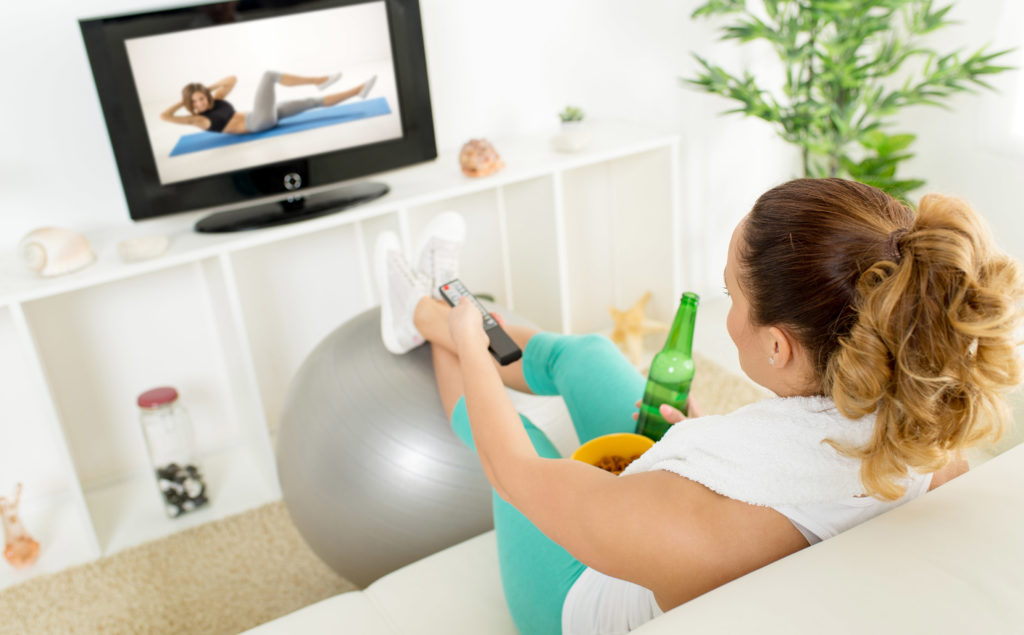
The anti-health kick
We’ve all heard of starting the year off with a health kick, but this year, Australians have started off 2022 with an anti-health kick. The Doin’ Good Report shows that although we’re on the other side of the pandemic, COVID bad habits have stuck around. In fact, 62 percent of Aussies say they’ve developed some less than desirable health habits that they’d like to shake. In addition, seven in 10 say their energy levels have been impacted, and often they feel tired and unmotivated since the start of the pandemic. And despite 55 percent of Australians saying in the last couple of months their levels of activity have increased, they still have a long way to go to get back to where they were, pre-pandemic.
Break the habit
“Regular exercise is important for reducing your risk of chronic diseases, including heart disease, type 2 diabetes and obesity,” says dietitian Rebecca Gawthorne. “Adding physical activity to your routine can also fight fatigue and increase your energy levels.”
Drinking enough water is another super-easy way to improve your health. It’s also a simple way to boost brain function, mood and energy levels. As a general rule, Gawthorne recommends you drink water whenever you feel thirsty to ensure you stay hydrated.
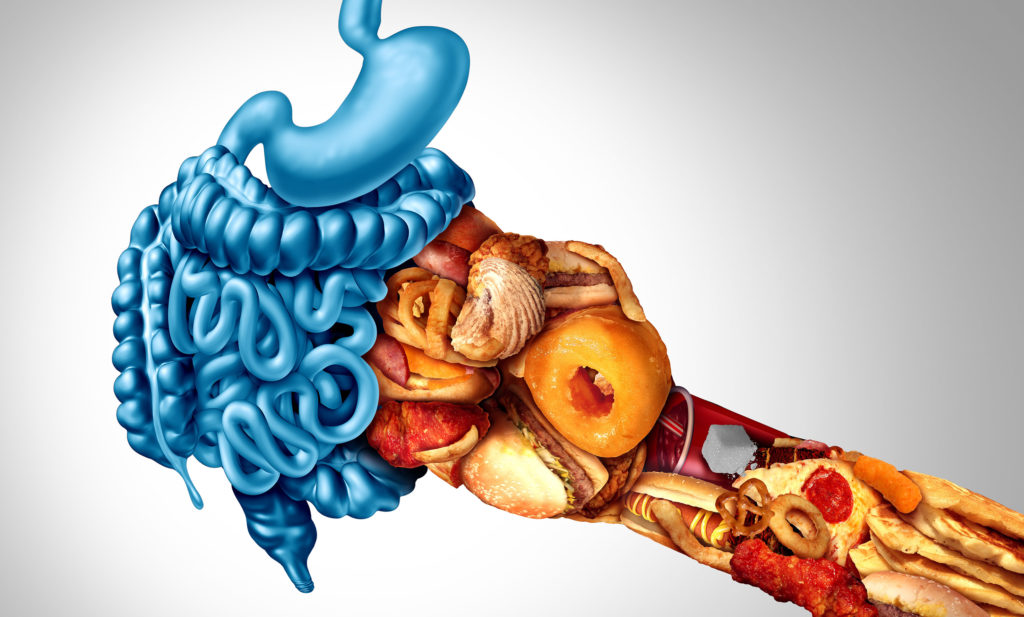
Gut feeling
More than 3.1 million Australians say that since the start of the pandemic, they’ve experienced an increase in stomach and digestive issues. More than half (56%) have noticed they have felt sluggish and believe it’s connected to their gut, with another 55 percent noticing their diet and lifestyle have affected their gut health. Meanwhile, 54 percent feel their gut health has been an issue since the start of the pandemic.
Break the habit
“Good gut health is linked to improved mood and a strong immune system,” Gawthorne says. “Gut health and energy levels are also closely linked.”
There are loads of things you can do to ensure gut health. Get enough sleep, eat slowly, stay hydrated and change your diet, if needed. But eating foods that contain prebiotics – types of dietary fibre that feed the good bacteria in your gut – can also make a difference.
“There are lots of foods that contain prebiotics naturally,” says nutritionist Jacqueline Alwill. “They include leeks, garlic, onion, Brussels sprouts, legumes and some grains.”
Foods that are best for an overall healthy gut include those high in fibre. Think bananas, berries, broccoli and peas; fermented foods like yoghurt, tempeh, kombucha and kimchi; as well as collagen-boosting foods like salmon, eggs and citrus fruits.
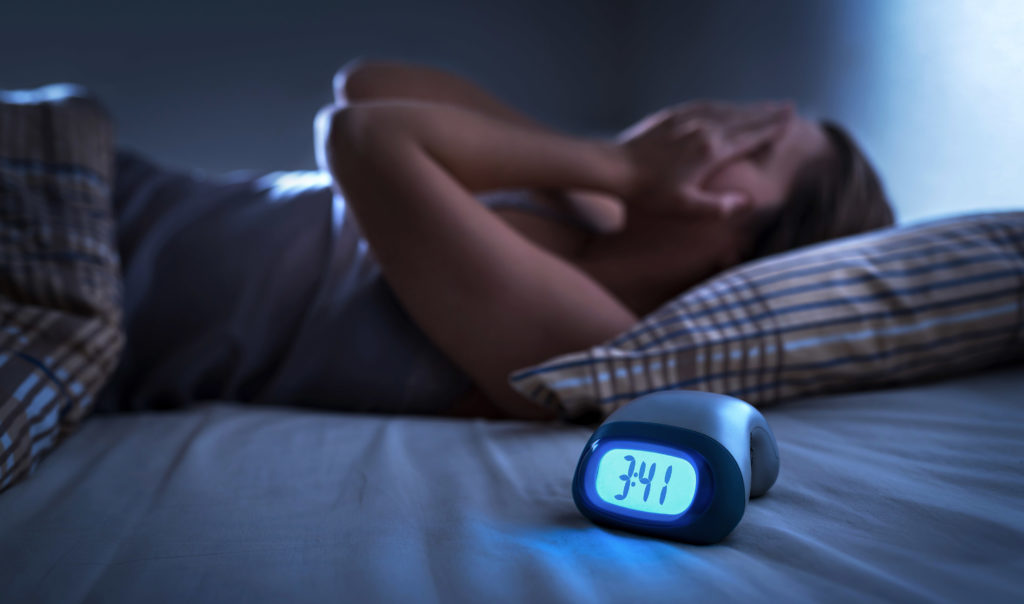
Sleep and stress
It’s no surprise that sleep and mood are closely linked. Australians have been noticing that increased stress is not only impacting their lifestyle; it’s also having a negative impact on their mental health. Nearly half (48%) of Australians say since the start of the pandemic they’ve experienced increased feelings of stress, with a third saying they’ve experienced difficulty sleeping (35%) and negative mental health (35%). Almost two thirds (63%) of Australians say their stress levels have been much higher since the start of the pandemic.
Break the habit
According to dietitian Tara Kaff, there are a number of ways your diet can make or break your sleep. Eating too many – or too few – calories can lead to sleep disturbances, as can eating a large, heavy meal late at night. However, high GI foods in the evening can help to improve overall sleep duration. Healthy high GI food choices include baked potatoes, watermelon, wholemeal bread, wholegrain cereal, instant oatmeal and muesli.
When it comes to stress, eating a balanced, healthy diet is key to helping your body to manage physiological changes caused by stress, Gawthorne says.
“I recommend starting the day with a balanced breakfast,” she says. “Avoid sugary pastries and too much caffeine,” she says. “I’d also make sure you’re prioritising protein. When chronically stressed, the body has an increased demand for protein. So make sure you include fish, eggs, beans, lentils, nuts and seeds in each meal. Protein also helps to slow the release of sugar into the bloodstream, giving you sustained energy to get through the day.”
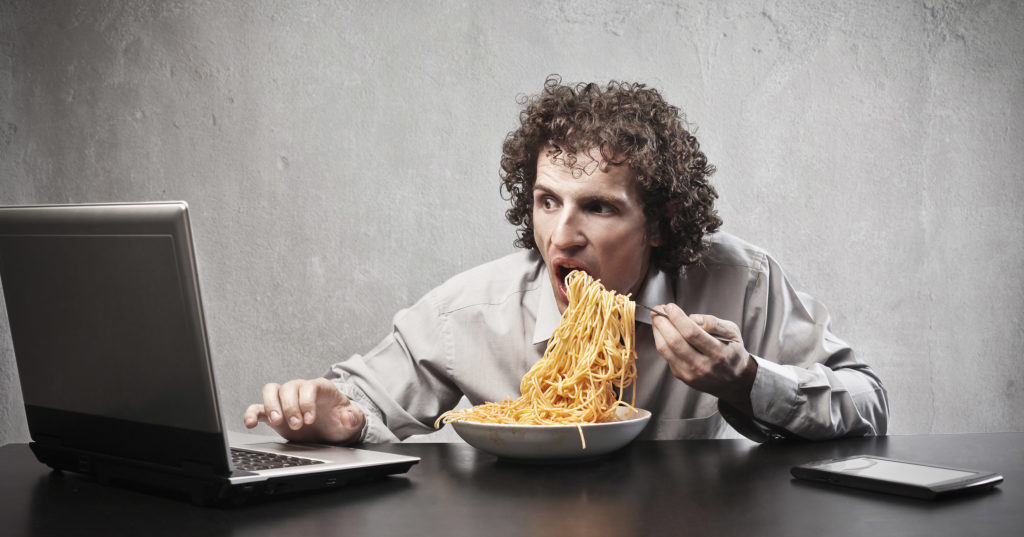
WFH woes
Those working from home have been hit the hardest. With a blur between work, play and sleep, Australians are seeing their eating and drinking habits contribute negatively to their health. Two thirds (64%) of Australians WFH have changed their eating and drinking habits as a way of coping with stress, even though they know these changes aren’t healthy. Further results show that more than half (54%) of Australians who work from home admit that working at their home has changed the way they eat in a negative way.
Break the habit
Making small, achievable changes is the best way to make a fresh start. Gawthorne recommends the following steps to help get your diet and your health back on track.
1. Start each day with a nutritious breakfast.
2. Get 7-8 hours of sleep each night. Fatigue can lead to overeating.
3. Eat your meals seated at a table, without distractions like your phone or TV.
4. Listen to your body and stop eating when you feel comfortably full.
5. Try healthy cooking methods, such as grilling, roasting, baking or poaching.
6. Flavour foods with herbs, vinegars, mustards or lemon instead of fatty, sugary sauces.
7. Limit alcohol to 1-2 drinks per day and have at least two alcohol-free days a week.
“Snacking is okay, and is totally healthy, but it’s important you make sure those snacks are good for you,” Gawthorne says. “Choose mood-boosting foods such as bananas, berries and dark chocolate, and opt for healthy drinks such as a quality kombucha.”
Most of us are creatures of habit. We buy the same foods from the same store, prepare the same recipes over and over and live within our own familiar routines of work, recreation and rest. But if you want to bring about healthy change, you need to shake things up.
“If you’re serious about eating healthier, you need to start thinking differently about your diet and lifestyle,” Gawthorne says. “Extended lockdowns are now hopefully behind us, so there’s no better time than now to re-boot and create positive change.”


